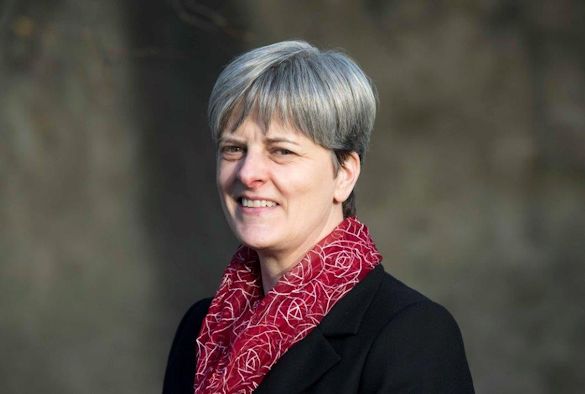
Author Professor Fiona Beveridge is Pro-Vice-Chancellor for the Faculty of Humanities and Social Sciences, Chair of the University’s former Equality and Human Rights Commission (EHRC) Internal Inquiry and Working Group and Chair of the Race Equality Charter Self-Assessment Team.
The Vice Chancellor and others have said this before but we need to continue to repeat it – racism is a significant issue within higher education and the University of Liverpool is no different. Racism continues to manifest itself in everyday situations, processes and behaviours. It is shameful that in 2022 I am writing in these terms but we must be honest about the size and the scale of the challenge we face if we are to meaningfully tackle racial inequalities. This will not happen overnight. There is no quick fix, no easy solution – but we are committed to taking decisive, wide-reaching action for as long as it takes.
Just over a year ago, we signed up to the principles of Advance HE’s Race Equality Charter, with a view to gaining accreditation, as part of our wider anti-racism action plan. We have achieved real change in reducing gender inequality through our participation in a similar scheme (Athena SWAN), and I am confident that the Race Equality Charter will enable us to make the progress that we all want to see.
The challenge is clear: awarding gaps are still too high; there is still a lack of representation of Black, Asian, and Minority Ethnic staff in senior positions; still barriers to Black, Asian, and Minority Ethnic students progressing to postgraduate study; and addressing deep seated cultural issues takes too long. There is, therefore, much to do.
And this work has started. I won’t reiterate here all the work we’ve been doing. I will, though, point out a few areas where we are making progress, and highlight some next steps.
Tackling Racial Inequalities Action Plan
The Equality and Human Rights Commission’s (EHRC) 2019 report ‘Tackling Racial Harassment: Universities Challenged’ laid bare some incredibly concerning truths about the higher education sector. In particular, that racial harassment was underreported, reporting mechanisms were ineffectual, and our sector was not doing enough to stamp out discrimination wherever it may manifest. In October 2020 we published an action plan highlighting the work we would undertake to address these issues and build a more inclusive campus for all staff and students. I can now report that 80% of this action plan is complete and embedded into the University’s business as usual processes and policies. Remaining actions are regularly monitored and I hope to soon be able to report full completion against these plans.
New Tools and Training
Report and Support has been fully rolled out as our primary tool for reporting harassment. The tool is available for all students and staff who would like to seek advice and support for any incident of bullying, harassment, sexual violence, domestic violence, hate crime or discrimination – this includes race hate crime, discrimination or harassment. The Report and Support webpages also includes a series of support articles and advice for people who are experiencing harassment or who are supporting someone who has.
The University has also developed the ‘Being a Good Liverpool Citizen’ Canvas module which sets out the behaviours and attitudes we expect of all our students and ways to engage in active anti-racism. If you haven’t already, I would encourage you to complete the module which includes content on race equality alongside topics such as consent, sustainability and the importance of community.
In addition, the University’s libraries team has collated an anti-racist reading list, which I would highly recommend.
Developing Capacity
We have been growing our capacity to develop our ambitions around race equality. Two new staff positions have been appointed to: Holly Nicholls has joined the team as the University’s new Head of Equality, and Karishma Asher has joined as the new Race Equality Officer. We have also formed the Race Equality Charter Self-Assessment Team, which includes representation from across the University as well as Jamilia Kwajah-Ellimah (Vice-President, Liverpool Guild of Students), along with three sub-groups dedicated to: data analysis of our equality gaps; student experiences; and staff experiences. In the next few weeks we will be holding in-person sessions co-hosted by Jamilia where you can find out more about the Race Equality Charter as well as the work of the main and student experiences sub-group and I would encourage you to attend these sessions if you can.
Next Steps: The Race Equality Charter
We will be building on these and other initiatives as we work towards a Bronze Race Equality Charter Award. The Charter itself provides us with the framework to identify institutional and cultural barriers standing in the way of racial equality for our students and staff. We need to engage with our University community to fully understand these barriers and to test and implement our plans for long-term institutional cultural change. This will take place in a number of ways, including the sessions I have already mentioned, scheduled for late March and April, engagement with specific groups and an all student and staff survey, which will be launched in May.
Tackling racial inequalities on our campus is everyone’s job and I want to ask each of you to play your part. This could be by making the time to engage in training and development opportunities or by attending in-person sessions on the Charter and certainly by feeding back on your experiences when the survey is launched. You will hear more about our work in this area over the coming months, including a blog on staff promotions, social media posts; including an Instagram takeover by the University’s Race Equality Officer, Karishma Asher, and a news piece on white allyship with details on how you can make a difference – I hope you will take the opportunity to do so.